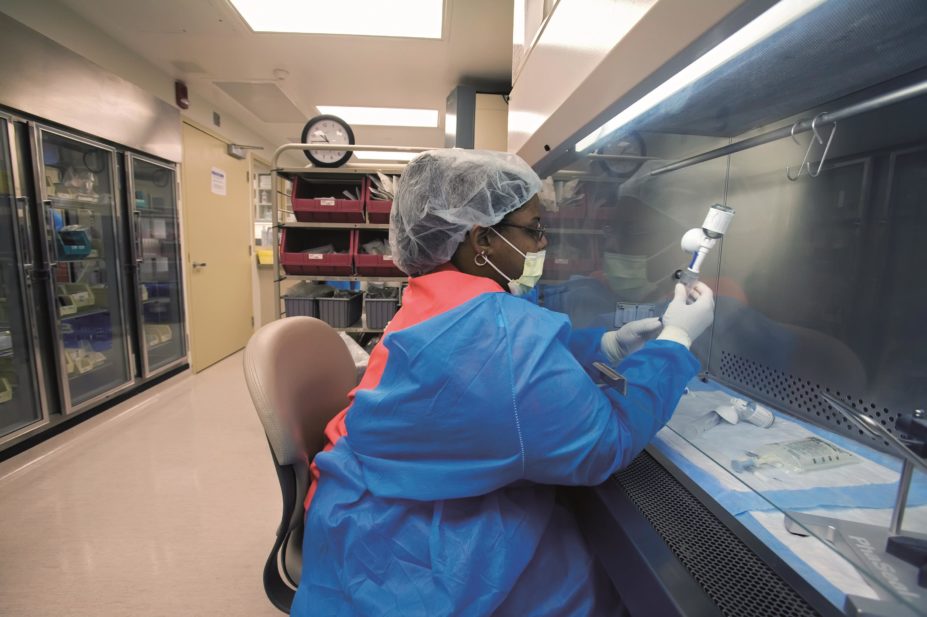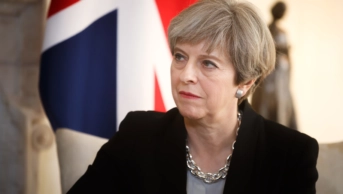
Jim West / Science Photo Library
New proposals have been drawn up for a revamped cancer drugs fund (CDF) after the present model was branded unsustainable.
Under the new model — described as a “managed access fund” — cancer drugs that are expected to receive a marketing authorisation will have to be evaluated by the National Institute for Health and Care Excellence (NICE) as part of its usual appraisal process.
NICE will be able to make one of three recommendations: approve the drug for routine NHS use; reject it for NHS use; or recommend it for inclusion in the CDF, according to a consultation document launched by NHS England on 19 November 2015. The proposals are out for consultation until 11 February 2016.
Drugs likely to win a place in the CDF are those that are clinically promising but which lack enough evidence to support a recommendation from NICE for routine commissioning. The drug will then be funded and made available to cancer patients for two years. During that time, NICE will collect evidence and reconsider the drug’s status. When the two-year period is over the drug will be taken out of the fund and either recommended for routine NHS use or not.
The proposals, according to NHS England chief executive Simon Stevens, will offer patients faster access to the “genuinely most promising cancer drugs”.
“For those drug companies willing to price their products affordably while sharing transparent information about real world patient benefit, the new CDF will offer a new fast track route to NHS funding,” he says.
Sir Bruce Keogh, national medical director for England, says difficult judgements will still need to be made about the availability of cancer drugs but describes the present model as “no longer fit for purpose”.

Source: NICE
Chief executive of NICE Sir Andrew Dillon says the system will generate data to help make long-term decisions about whether to use new cancer drugs
NICE chief executive Sir Andrew Dillon says the system will offer patients access to promising cancer drugs “at a fair price” as well as generating additional data to help make a long-term decision about whether to use them.
One of the key issues with current CDF arrangements, according to the consultation document, is that there is no process under the present system to routinely collect up-to-date data that can be used to decide the fund’s long-term relationship with the NHS. “As a result, the NHS in England is currently allocating an increasing share of the cancer budget to treatments of uncertain value, and the impact of this is being felt in other cancer services and in other parts of the NHS,” the consultation document says.
The CDF was originally launched in England in 2011 with a £200m budget and designed to offer patients access to promising cancer drugs not routinely available in the NHS. So far, 72,000 patients have benefited from the fund, and its budget reached £340m in 2015–2016. Its current arrangements are due to end on 31 March 2016.
The Association of the British Pharmaceutical Industry (ABPI), which represents drug companies, says it is “encouraged” by the proposals because the fund would be led and managed by NICE and offer conditional acceptance while evidence is gathered.
“We believe this is the right move,” says Alison Clough, APBI’s acting chief executive officer. “The current system of ring-fenced funding for cancer doesn’t work. What is now needed is wholesale change and reform of the medicines assessment process used by NICE.”
Cancer charities welcomed the opportunity to comment on the proposals. “It’s been clear for some time that [the fund] is not sustainable,” says Alison Cook, director of policy for Cancer Research UK. “The cancer strategy published earlier this year has already set out the need to reform the system and we want to see a long-term solution, including a review of how NICE works. We’d like to see a single system for drugs approvals that can respond to the needs of patients.”
Baroness Delyth Morgan, chief executive of charity Breast Cancer Now, is hopeful that the proposals will lead to improvements but is concerned about the tight timetable for the consultation.
“The problems with our system of drug access as it stands are huge. That’s why it’s vital that there is sufficient time for any proposed changes to be thoroughly assessed before they are put in place,” she says. “Ultimately, the impact on patients must be at the heart of these reforms.”


